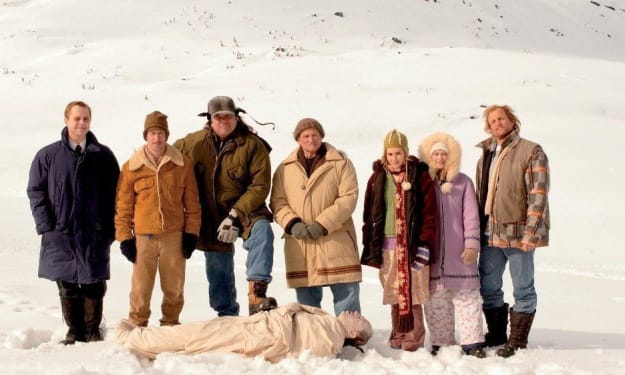
Steven Spielberg never neglected to stun his crowd with this film. From the relentless truck (Duel) to the scary Great White shark (Jaws) and through the old minimal outsider that pointed with an enlightened fingertip (E.T.), Spielberg's films have become symbols that have a bona fide ability to excite the majority of his fans. Nonetheless, one of Spielberg's motion pictures set apart in the sci-fi film classification was Close Encounters of the Third Kind. The film's main achievement is how it mines both of those nonexclusive veins as though it were attempting to be everything to all sci-fi watchers. The feeling of secret set up at the kickoff of the film, with the disclosure of the broadly lost group of torpedo planes incomprehensibly put down in the Sonora Desert in a residue storm, is connected to a feeling of conceivable hazard – the risk of the obscure and the puzzling. They are vouching for Spielberg's intensive information on the class, the setting, audio effects, and general development of the scene reverberating a comparable disclosure scene toward the beginning of another renowned "attack" film. As the story propels, Spielberg utilizes an assortment of stunts, particularly thriller, and works out in his past films, similar to Duel (1971) and Jaws (1977), to additional that ghostly tone and control our feeling of the other. Electrical machines that turn on and off, as though moved by some concealed force, mechanical toys that abruptly fire up without anyone else, blinding lights from different puzzling or obscure sources, weird clamors, bounce cuts for shock impact – these are such impacts that we experience every step of the way in Close Encounters of the Third Kind (Telotte, 2001, p. 148). These equivalent methods in narrating are as yet suggestive of the film Minority Report. Here, Spielberg presents a frightening future where residents are exposed to continuous observation through retinal sweeps as people are captured and detained for wrongdoings they have not perpetrated yet. The police have prescience (Creed 192).
Adequately genuine, as indicated by Kaufman (22 July 2002), Spielberg is altogether himself during the entire film as he illustrates "his average artistic verve." For example, the initial montage displays a "faintly entertaining yet horrid manner by which the flying cops are taken care of." As Spielberg's previous sci-fi, Close Encounters of the Third Kind and E.T. gleamed with humanistic concern, "Minority Report has more than a whiff of that fragrance." As of now, chiefs have changed into mechanical wizards. Spielberg positively has the magic, yet that isn't all he has; however, he can, in any case, infuse some heart in his films as "he can manage human subjects that are more extravagant and more compensating than the ones in this long yet specifically slim screenplay."
Felperin (August 2002) likewise imagined that under Minority Report's "lovely, affected doohickeys and dazzlingly oversaw set-pieces," the film is Spielberg's "rawest investigation yet of tensions about the imperilment of youngsters." As the film's hero, Anderton's focal journey is to discover why the criminal framework he works for has named him a killer. He has been inspired to forestall wrongdoing by his child's snatching six years prior. As embodied by asserted off-set domineering person Tom Cruise and set up in the film's opening as a man of incomparable capability, Anderton must be incited to kill by the one who took his child. For sure, the film recommends that if the man he defies were liable, Anderton would be supported in killing him. However, the way that the film's decision attempts to streamline things with the gathering of two families isolated due to the Pre-Crime Unit, one for Anderton and his hopeful spouse (his hand put on her gut is the film's most messy touch) and one for the pre-machine gear-pieces, scarcely eases the idle injuries crowd have seen in the whole movie. The straightforward humanism (yet touched with torment) that has been Spielberg's brand name since Close Encounters of a Third Kind appears to have been consumed by the more obscure accounts he's investigated since Schindler's List. Felperin (August 2002) recommended that Minority Report has "dreary clean surfaces and the protofascist oppressed world" and "feels more Kubrickian than A.I.."
Notwithstanding, the film is really what Spielberg acquired from doing films of various kinds. Currently, the movie reports propose Spielberg's mass crowd hasn't taken well to his newly discovered negativity. Yet, film valid statements will perceive "he's turned into a more nuanced and provocative producer."





Comments
There are no comments for this story
Be the first to respond and start the conversation.